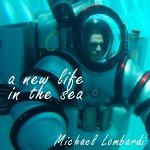 A recent article in our local ‘Providence Journal’ newspaper raised some discussion about our State University – the University of Rhode Island – and its ability to generate jobs via its flagship program in oceanography.
A recent article in our local ‘Providence Journal’ newspaper raised some discussion about our State University – the University of Rhode Island – and its ability to generate jobs via its flagship program in oceanography.
The questions embedded throughout the piece related to spinning small/private business out of the research community. Being involved in private sector enterprise, but with one foot constantly in academia, I can offer some unique outside-in perspective.
Oceanography, and all of the ocean sciences, are unique in that it takes a balance of inquisitive ideas to formulate hypothesis driven research, with ever-evolving technology to afford access to the environment, and thus gather meaningful data. Sensors, instruments, and vehicles are the ticket to unlock the ocean’s mysteries. We can’t do the research without the technology, and we have no motive to build the technology without the research. The complicated part is where the money comes from. In some cases, soft grant monies from state, federal, private, and public sources fund the basic research, and with no expectation of a hard monetary return on investment. On the other hand, private sector or defense needs call for improved marine technologies, which often come about as hard investments into technology development. Like any business, there is some expectation to either make or save money as the result of the monetary infusion.
This is where it gets complicated in an academic setting. While most institutions operate as ‘not for profit’ entities, this does not necessarily mean that they are ‘not in business’. The institution seeks to sustain itself, and grow to meet the needs of its constituents and stakeholders. It needs money to do that. Attracting grant/soft monies for basic research is certainly important, but this infusion cannot be treated as an expendable resource – research is highly consumptive. Administrators understand this, and use various metrics to define and gauge the productive outputs of research programs – papers, presentations, continued grant support, attraction of private research investments, and so on. The issue often lies with the researcher, who can be so fixed focused on very, VERY minute details, that they do not come up to breathe and see how the work fits within a broader picture. This is not true for all academics, but I have seen it firsthand, and it does indeed exist.
So, meeting in the middle, that is a strategy to direct basic research into areas that do indeed improve our quality of life, yet may lead to propagating private sector interests – something that we can sink our teeth into to drive commerce – means creating focus from the top-down, and winning support in a vision from the bottom-up. It’s not easy in major institutions which house numerous varied agendas. This type of vision and resulting strategic planning can attract major corporate support, as the research contributes to making the world turn that we all depend on and benefit from.
I’ve worked with URI – the target of the article – in numerous capacities over the years. They do what they do very well, and are a player in the ocean sciences. However, what needs to be understood at all levels is that the marine community is not comprised of thousands and thousands of high paying positions in the private sector – at least not yet. All around, the ocean industry is still in its infancy. The several small businesses – both in life sciences and in engineering – that have spun out of URI, or were formed by alum who stayed here and are exactly that – small businesses. And they feed a very small market…this is true for nearly all businesses spun out of marine programs.
It is not uncommon for such a ‘business’ to consist of less than a handful of individuals. They will each earn a reasonable wage providing goods or services to a niche market, but are not striking it rich, nor on the way to creating several thousand jobs here in Rhode Island – wrong industry, wrong target market, wrong expectation. Politicians and policymakers cannot expect more than that from ocean related small business. Should RI and other states stand strong in supporting the private enterprise spin-off – absolutely. However we need clear understnading that economies of scale and thousands of jobs are not the outcome.
So, is the research ‘investment’ worth it? Tens if not hundreds of millions of dollars have funneled through URI and other ocean related institutional programs in the state. So how to gauge its value? What is the return on investment? To be frank, its too early to define. The ocean is a vastly untapped realm of our Planet. It is impossible to understand the full economic potential that has yet to be exposed. We are still, and must keep on exploring…the return is a better understanding of our place on this Blue Planet. When its doors are opened for the masses, then, and only then, will commodity markets open to meet an entirely new way of life.

